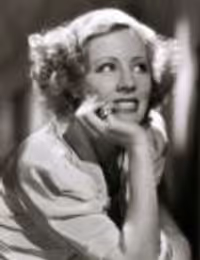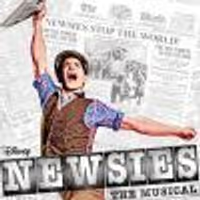Has the Broadway Baritone died?
BariTenor1018
Swing Joined: 4/9/13
#1Has the Broadway Baritone died?
Posted: 4/9/13 at 10:40am
I've been keeping up with the modern theater happenings for the past couple years, and it seems that with each new show, belting girls and high voiced men can add more and more to their lists of "dream roles", but what of the baritone? It seems that most men can't claw their way into broadway without being able to hold their own in the range above middle C. Just for reference, what are some roles for baritone on broadway, either new or old? Not songs particularly, just roles in general.
Edit: I agree that baritones/basses are not the only group struggling to find good roles these days. The show I often see as an example is 42nd Street. That was penned with 2 strong Alto leading ladies, as well as a Baritone leading man, although Julian does sometimes have some high parts. But if you look at a more recent show like Rent, all of your men have to have fairly high ranges, same goes for the women.
Updated On: 4/9/13 at 10:40 AM
broadway guy
Broadway Legend Joined: 8/5/11
#2Has the Broadway Baritone died?
Posted: 4/9/13 at 10:50amBaritones?? What about The Bass singers??....
#2Has the Broadway Baritone died?
Posted: 4/9/13 at 10:59amBari, have you seen Seth Rudetsky's video with Marc Kudisch, where Marc adamantly defends the Baritone voice?
#3Has the Broadway Baritone died?
Posted: 4/9/13 at 11:08am
If you can't get above a middle C, you're probably a bass, not a baritone.
I think the baritone has fused heavily into the bass and the tenor, thus creating the "bari-tenor" range, which is typically codified by a part that stays in the upper range of baritone without demanding notes that are specifically tenor-only, and can thus be played both by baritone and by tenor.
Also keep in mind the way trends in music go. The rich, deep, quasi-operatic vocal of the traditional baritone or bass will be less in demand than someone who can handle either pop, rock or jazz stylings comfortably. Kudisch is the most traditional baritone working today (although has been known to sing and sustain a high B, notably in Millie), but consider Norbert Leo Butz as the best example of a baritone voice working in contemporary styles, whether jazz in "Catch Me If You Can," contemporary pop Broadway in "Wicked," or twenty-first century song-cycle cabaret in "The Last Five Years."
#4Has the Broadway Baritone died?
Posted: 4/9/13 at 11:31am
Baritone-range roles from the last ten years on Broadway (excluding revivals):
Toad - A Year With Frog and Toad
Fiyero - Wicked
Bus/Dryer - Caroline Or Change
Dracula - Dracula
Freddy & Lawrence - Dirty Rotten Scoundrels
Lancelot, others - Spamalot
Chad - All Shook Up
Signor Naccarelli - The Light In The Piazza
Baron Bomburst - Chitty Chitty Bang Bang
Barfee - The 25th Annual Putnam County Spelling Bee
Mister - The Color Purple
Aldolpho - The Drowsy Chaperone
Major Bouvier - Grey Gardens
Weill & Brecht - Lovemusik
Tom Hurley - A Catered Affair
Shrek - Shrek
Hart - 9 to 5
Interlocutor, Bones, others - The Scottsboro Boys
Gomez - The Addams Family
Frank Sr. & Hanratty - Catch Me If You Can
Eddie & Curtis - Sister Act
And more.
Just an FYI - if you can't sing above middle C, there aren't going to be many principle roles for you in the musical theatre. A baritone should have at least a good F (and I think he needs a strong G, personally) - in the theatre, that is.
Updated On: 4/9/13 at 11:31 AM
#5Has the Broadway Baritone died?
Posted: 4/9/13 at 11:41am
Any leading man nowadays needs a strong G. I think if you have that you can get by with a lot of roles.
I would say Dan in Next to Normal is pretty much a baritone. Same with Henry.
#6Has the Broadway Baritone died?
Posted: 4/9/13 at 11:50am
Part of the issue here is not that roles are not being "written for baritones", rather it is that many male roles in modern musicals are being written for younger men. Although many younger men can sing the lower range, a way to show youth of a character on the musical side of a score is through using a higher more "vibrant" notes.
There are many roles in recent memory written in the "Bari-tenor" range, which to quote Marc Kuddish, is actually what a baritone range is, it just looks more versitile to a casting director to say "bari-tenor".
Shrek in Shrek
Jack Kelly in Newsies
Elder Cunningham in The Book of Mormon
Dan in Next to Normal
Carl Hanratty in Catch Me if You Can
Jonas Nightingale in Leap of Faith
Andrew Jackson in Bloody Bloody Andrew Jackson
Updated On: 4/9/13 at 11:50 AM
#7Has the Broadway Baritone died?
Posted: 4/9/13 at 12:04pmNot sure I'd call Newsies or Leap of Faith Baritones. In Leap of Faith, Raul got pretty hight on that one song where he was singing with Kecia Lewis. And if I remember correctly, Jack Kelly goes pretty high in Santa Fe.
#8Has the Broadway Baritone died?
Posted: 4/9/13 at 12:10pm
How about altos?
Every girl/woman role written today is a belt soprano or a legit soprano. It's all about the high notes.
I miss the smokey alto voices in principle roles.
blocked: logan2, Diamonds3, Hamilton22
Musicaldudepeter
Broadway Legend Joined: 3/18/10
#9Has the Broadway Baritone died?
Posted: 4/9/13 at 12:20pmPlease stop using the term bari-tenor. It's baritone, or high baritone, or tenor.
OrdinaryJukebox
Featured Actor Joined: 6/7/06
#10Has the Broadway Baritone died?
Posted: 4/9/13 at 12:26pmMen HAVE to sing the high notes nowadays. Altos have a rough time, too but I feel like all men have to have an Elphaba-like range to get work. I feel like every role for a man is the equivalent to what Elphaba is to women ... it's very frustrating!
chinto1984
Leading Actor Joined: 8/6/07
#11Has the Broadway Baritone died?
Posted: 4/9/13 at 12:27pm
I like this post. There needs to be more colors of the voice present in musical theater. Different voice types help with the characterization and storytelling. And those two elements haven't been present in musicals in years.
Someone said altos. Bring back some altos or let the altos take back some roles. I personally don't like it when Fantine is played by a thin-voiced, soprano when it sounds so much better with an alto. It has a lot to do with this thin, light right in the mask sound that Sutton popularized.
chinto1984
Leading Actor Joined: 8/6/07
SporkGoddess
Broadway Legend Joined: 7/27/05
#13Has the Broadway Baritone died?
Posted: 4/9/13 at 12:48pm
People are still writing legit soprano (no belting) roles? Who, aside from Adam Guettel?
#14Has the Broadway Baritone died?
Posted: 4/9/13 at 1:14pm
Newintown -
I like your list, but a tenor could comfortably sing every one of those roles...in fact, I've sung seven of them. Most of these roles sit in the middle of the male range, never going particularly low or particularly High, and a lot were written for actors who weren't necessarily trained singers. Two of the roles on your list, Shrek and Barfee, are outright misclassified: Shrek has to rock out on an A, and Barfee's harmonies are written to be sung 8va (above middle C, in unison with Schwarzengrubeniere) the entire show...the role sits on E through G the entire night, and goes up to Bflats. These are no baritone roles. What it seems like you did on your list is you went to MTI or something and just wrote down every role classified as a baritone. I'm not accusing you or anything; if that's what you did, that's fine, it's just not accurate. Just because something is in a baritone range doesn't mean it's written for a broadway baritone.
When I think of a Broadway Baritone, I want to hear something that has lows as well as highs, that necessitates a singer having some power at the bottom of his range. Admitedly, most of the great broadway baritone roles were written for Baritenors like John Raitt, so they don't dip down so much, but a role like Billy Bigelow or even Javert requires some ooomf around C below middle C. The last staring role I can think of written for this kind of voice is Officer Lockstock in Urinetown. Before that, I think you have to go back to the Beast. If someone can think of a more recent example, I would be thrilled. Now, obviously, distinctions between voice types, even in the classical world, are nebulous. A Baritenor is a totally fine voice type, but every so often you want a good bassy sound that seems to be vanishing from the scene.
OrdinaryJukebox
Featured Actor Joined: 6/7/06
#15Has the Broadway Baritone died?
Posted: 4/9/13 at 1:47pm
Well said ChairinMain; I noticed a few on Newintown's list as not REALLY being baritone roles (not an attack on you Newintown). As a baritone, I see some of those but then I see where some of those characters have to go, vocally, and I'm like, "Um, no. NOT baritone territory."
I played Lockstock and loved the role; sat really well in my voice and even though he touches a G, he doesn't SIT up there.
#16Has the Broadway Baritone died?
Posted: 4/9/13 at 1:50pm
No matter what the score shows, Brian d'Arcy James and Dan Fogler, who originated the roles of Shrek and Barfee, are definitely baritones.
Just because a male role has "high notes" doesn't mean it's not for a baritone. Acting singers (or singing actors) find ways to place notes that less adventurous singers will declare off limits.
Words like "tenor" and "baritone" are at least as much about timbre as range, if not more so.
#17Has the Broadway Baritone died?
Posted: 4/9/13 at 1:53pm
Consider Broadway and West End baritone Jerome Pradon, who (in)famously played Judas in the 2000 filmed revival of Jesus Christ Superstar. The role is written for a raw, powerful high rock tenor who lives far above a baritenor G. Thus, much of the role was above Pradon's comfortable range. Rather than deciding he couldn't do it, he ran with it, using the vocal strain and discomfort as part of his character, making Judas a desperate, somewhat broken man barely hanging onto control of his life.
Acting often trumps timbre AND range.
#18Has the Broadway Baritone died?
Posted: 4/9/13 at 2:44pm
Newintown: I would really quibble with classifying Brian D'Arcy James as a baritone, and I suspect so would he. Listen to him in Titanic or Wild Party...That's unquestionably a tenor voice. He's got some dark colors that have come out as he's gotten older, but so did Pavarotti. Dan Fogler was singing in a character voice the entire show and I haven't heard him sing anything else, so I can't really judge. But having played Barfee, I can tell you it sits RIDICULOUSLY HIGH even for a tenor. It's the harmonies that kill you. Like I said Every time the show goes into an ensemble harmony, it's written so Barfee is singing in unison with Schwarzengrubeniere. That means he is singing between Middle C and G the entire night. Unless a baritone is doing it in falsetto or doing it an octave down, I have no idea how he would get through it. The solo stuff is lower, but Magic Foot is written to end on a High A, uncomfortably high for most baritones, and "Second" is all over the place. The only baritone role in that show is Leaf Coneybear, who never goes above E.
Yes, I'd agree that tone, color and range all contribute equally in what makes a fach...but most of the roles under discussion are character roles where it really doesn't matter HOW you sound as long as you're acting it well. Just because you don't sound like Aaron Tveit or Justin Timberlake doesn't mean you're not a tenor.
#19Has the Broadway Baritone died?
Posted: 4/9/13 at 2:46pmI am writing a musical right now, in a decidedly non-modern style and genre. As such, I have made sure to include baritone AND bass leading roles for the men, and an alto part for one of the female leads. It just seems more stylistically appropriate.
BariTenor1018
Swing Joined: 4/9/13
#20Has the Broadway Baritone died?
Posted: 4/9/13 at 3:10pmGood! Seems like you have some more sense then current writers. They're stuff is awesome, but they limit themselves to such a small pool of people to fill the roles. It seems like they're setting themselves up to not have a successful show. That's why I think shows like Phantom and Les Mis and Lion King were/are all able to run for such a long time. They feature leading roles for almost all voice parts, which doesn't limit them as far as getting new casts goes.
#21Has the Broadway Baritone died?
Posted: 4/9/13 at 3:26pm
ChairInMan, looking at the published Bee score and listening to the tracks, I'd suggest there's a misunderstanding about the 8va marking for Barfee; 8va can mean either an octave above or octave below. Fogler is clearly singing an octave below Logan throughout on the recording.
As for Coneybear; he has a few F#s in "I'm Not That Smart," including the long last note. And Ferguson's voice definitely has a higher, reedier timbre.
"Magic Foot" hovers around D natural or lower almost all the time, until the end when he briefly hits the A before coming to rest on a (character-y) G.
Updated On: 4/9/13 at 03:26 PM
#22Has the Broadway Baritone died?
Posted: 4/9/13 at 3:33pm
Really?....Well, I spent six months killing myself vocally 8 times a week then because my music director is an idiot. :) Sorry.
Updated On: 4/9/13 at 03:33 PM
#23Has the Broadway Baritone died?
Posted: 4/9/13 at 3:36pmSometimes great theatre is built upon such misunderstandings; I have no doubt there were many audience members who took delight in your stratospheric belting.
#24Has the Broadway Baritone died?
Posted: 4/9/13 at 3:46pmYou know, to be honest, I've never heard 8va meaning "sing this down an octive." that's 8vb, isn't it? I truly think that the written intention is for Barfee to sing in a higher, more pubecent octave. Yeah, you could absolutely disregard that with no real damage to the harmonies, but if I ever do the role again (and there's a fairly decent probability of that, since it's a popular show in the regional scene at the moment), I'd probably take a similar approach. I dunno, I was doing it with a group of people who were mostly REALLY good singers (we had an AWESOME Mitch, especially), so the high belting didn't really stick out. That's probably just self-justification, and my musicianship skills are none the best, but yeah, I'm gonna stick by this judgement.
Videos








